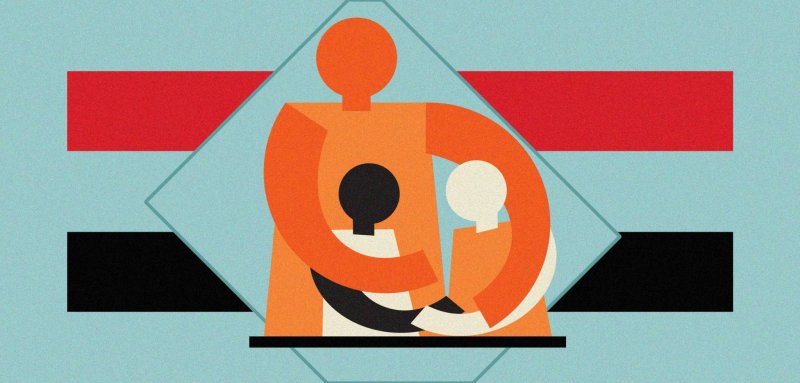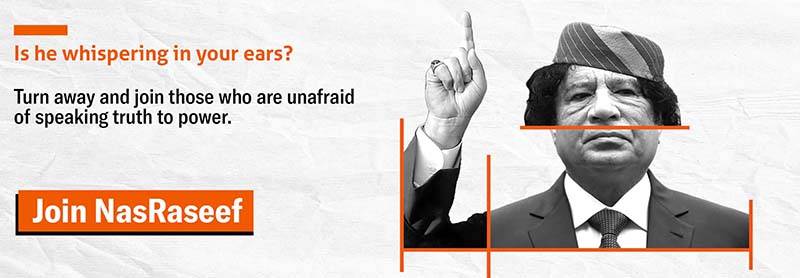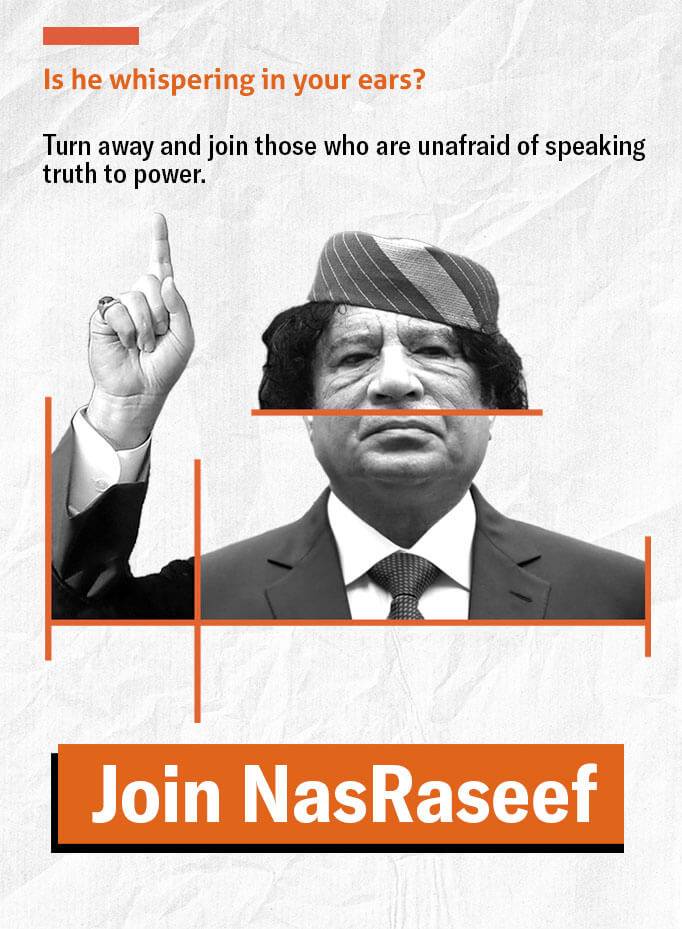“My parents accuse me of neglecting my daughter, even though they do not intend to share responsibility with me. Even her father, who refuses to spend any money on her, speaks with people complaining that I neglect her. No one imagines the hell, the psychological torture and the blame that’s leveled at me as a single mother.”
These are the words of Rahma Ehab, 26, the mother of a 4-year-old girl, in an interview with Raseef22. Rahma is separated from her husband and says she has been seeking a judicial divorce for three years. Her husband has taken a second wife and left them without a provider.
There are more than 12 million single mothers in Egypt, the majority of whom are widows, divorced women and separated mothers who have not formally divorced.
There are more than 12 million single mothers in Egypt, according to the Egyptian Statistics Observatory, the majority of whom are widows, divorced women and separated mothers who have not formally divorced. Statstics show that, in about 30% of households, women are the main breadwinner. Recent statistics confirm that 38% of Egyptian women are heads of households and 26.3% of women live under the poverty line.
Suffering to get a proper job
Ghadeer Osama, 38, is a single mother of two boys and girls in Cairo, while her family lives in Alexandria. Ghadeer has faced great difficulty in finding steady work with permanent pay. She moved between different professions, offering private lessons, working in a nursery, as well as a nursing home, as a personal assistant to the gravely ill.
"After years going from court to court, I got 1,200 pounds (about $70) a month for my three children, although it is not enough to buy them cheese and bread,” she said. “But even that their father doesn’t pay regularly.”
Fathers often avoid paying for their children’s expenses after divorce as a punishment for mothers to pressure them to return. Among the tricks fathers use to pay less child support is to marry another woman, leave their jobs or claim that their parents need their financial support.
Often, the husband doesn’t pay child support even after he has been legally compelled to do so, which forces the single mother to embark on a difficult new round of court proceedings. In the end, he is allowed to pay the arrears in convenient installments. All this forces the single mother to work overtime to provide for the needs of her children.
A tough daily routine
As for the details of her day, Ghadeer told Raseef22: "I wake up at 5 am every day, clean the house and bring the food and wash the clothes before waking my children at half past six to begin the stage of preparing for school, dressing them, preparing breakfast and sorting out their school bags.”
She continued: “I take them to school at 7:15 and by eight I am ready for a day of work or to look for a new job. At one, I go out to bring them back home before returning to work. When I am not working I go back home with them, help them study and look online for a job. I hope I can eventually afford to pay for a private teacher, because helping them study is a massive effort.”
Ghadir used to take her youngest child, who is 3, to work, because his two sisters, who are seven and 10, were unable to care for him in her absence. The employer complained a week later and fired her, and Ghadir has been repeatedly threatened with eviction from her current residence because she is unable to pay the rent.
She said that few members of her family were willing to help.
"Many parents have the conviction that as long as the girl has been married off she does not have the right to any help,” she said. “My parents also often advise me to leave my children to their father. This is not at all an option even if I have to become a beggar to survive.”
The unemployment rate among women in Egypt is 21.4% compared to 6.8% among men in 2018, according to the Central Agency for Public Mobilization and Statistics in the country. Although the World Bank report of March 2019 indicates that women's representation in the labor force in Egypt has risen to 23.1% over the last 10 years, 60% of them are employed in the public sector.
The psychological burden
Manal Adel, a 33-year-old single mother of a boy and a girl, and who study in different schools, said it was difficult to juggle her duties as she plays the roles of "father, mother and breadwinner."
She told Raseef22 that she gets up at 6 am every morning to start packing her children's bags and then wakes them up at 6:30 to feed them and dress them. Then they take the school bus.
"The cost of the school bus is expensive, but I prefer to rely on it in order to save time for other tasks such as washing, cooking, etc.," she said.
Between 7 and 8 am she prepares lunch for her children and then goes to work as a civil servant, until her shift ends at 3 pm. The children finish their school day an hour and a half earlier, and the bus driver leaves them with the concierge of the building.
"I have no other choice because they don’t care at my workplace when I ask to be let out earlier for my children or even to be allowed to bring them to the workplace for the last hour and a half in the day,” Manal said. “My boss refuses, saying it would be disrespectful to the citizens who come take time off from their work to complete their paperwork and if any inspector passes by during the day then my boss would have to account for my absence.”
Manal recounted what happened to her after her divorce: "Immediately after the divorce, I worked day and night to meet the needs of my child because the father refuses to spend any money on them as punishment.”
She added: “When I applied for divorce, I left my child with my mother, and because she was an old lady, she did not really interact with them and they were in a bad psychological state. I was advised by a doctor to devote more time to them, especially in the absence of the father.”
After returning from work, Manal begins to prepare food for her tired, hungry children who are forced to wait in the street after a long day at school.
"I hug them and apologize for everything, and I swear that I am tormented for not being there," she said. "Then I feed them and help them do their homework.”
She then takes them to private classes, after which everyone returns home exhausted.
"I need a 72-hour day and it will not be enough to finish all my duties. I feel like I'm running in an endless loop. I can’t sleep because of my anxiety that the next day will be another round of this exhausting routine.”
”After they sleep I find myself wondering whether I should sleep in order to continue the next day, which will carry the same hardship, or take the opportunity while they sleep to take a break from their endless requests which do not stop, or tackle the backlog of housework such as washing and cleaning and others,” Manal said.
She added: "I need a 72-hour day and it will not be enough to finish all my duties. I feel like I'm running in an endless loop. I can’t sleep because of my anxiety that the next day will be another round of this exhausting routine.”
Being blamed by everyone
Rahma Ehab’s routine is no less exhausting, even though she only supports one child. She works as a teacher with a meagre salary, and she has to offer private lessons to students.
Rahma picks up her daughter from her preschool after she is done with her main teaching job, and takes her to the homes of the students where she gives private lessons, working continuously from 3 to 10 pm. Although she is engaged in work day and night, Rahma sometimes needs to borrow money from her parents or sisters, which she described as "humiliating.”
"Not everyone understands, like the parents of the students I teach, why I have to bring my child, especially when she is sick and I have to carry her around for two hours,” she said. “When I tell them my circumstances, some sympathize, and others are angrily silent.”
At 10:30 pm, Rahma returns to her home with her child and has quick meal. Her baby is half asleep and hungry.
"I do not have time to cook," she said. "My child was malnourished because of that. I still owe a lot of money after spending a period in the hospital. I wish I could afford one more week to stop and rest.”
The breadwinning mothers of Egypt
Nermine Abu Salem, the founder of the Mothers of Egypt's Households group on Facebook, which includes 54,000 mothers, told Raseef22: "Single mothers in Egypt suffer from great economic pressures and have become the sole breadwinner for their children in the absence of the father. The single mother spends most of her day looking for a living and the family courts in a desperate attempt to get the minimum amount of their rights. "
"This is an unbearable psychological burden for a mother who devotes her life to her children even though spending time with them becomes impossible, causing many family, educational and psychological problems for the mother and her children," said Nermine, who is also a single mother.
“Single breadwinner mothers are forced to give up their femininity and willingly abandon all their human rights, and yet are always accused of negligence, which deepens their suffering," she added.
Nermine was selected by Facebook as one of 115 people out of 6000 candidates from 46 countries considered one of the founders of groups that positively impact their communities.
After enrolling in the Facebook Community Leadership Program, Nermine was provided with a grant that provides resources to train 30 single mothers in her group in four areas: candy-making, sewing, accessories design, and make-up design. The grant provides them with the opportunity to train and the resources needed to start a private enterprise.
Nermine provides members of her group with psychological, educational and legal counseling by specialists to understand the difficulty of coping with life conditions as single mothers in Egypt.
"I am one of them and I suffer what many suffer from," she said. "Qualifying for a decent job that meets the needs of the children and allows them to take care of them is all they need to become strong women and overcome their plight."
"Many of them came from Upper Egypt, hundreds of kilometers away from Cairo, to get the scholarship, because they simply do not want to extend their hands to anyone or even their families," she added.
Nermine called for providing suitable jobs for single mothers, appealing to every father not to abandon his responsibilities for his children after separation from their mother.
Raseef22 is a not for profit entity. Our focus is on quality journalism. Every contribution to the NasRaseef membership goes directly towards journalism production. We stand independent, not accepting corporate sponsorships, sponsored content or political funding.
Support our mission to keep Raseef22 available to all readers by clicking here!








Join the Conversation
جيسيكا ملو فالنتاين -
7 hours agoجميل جدا أن تقدر كل المشاعر لأنها جميعا مهمة. شكرا على هذا المقال المشبع بالعواطف. احببت جدا خط...
Tayma Shrit -
1 day agoمدينتي التي فارقتها منذ أكثر من 10 سنين، مختلفة وغريبة جداً عمّا كانت سابقاً، للأسف.
Anonymous user -
2 days agoفوزي رياض الشاذلي: هل هناك موقع إلكتروني أو صحيفة أو مجلة في الدول العربية لا تتطرق فيها يوميا...
Anonymous user -
2 days agoاهم نتيجة للرد الايراني الذي أعلنه قبل ساعات قبل حدوثه ، والذي كان لاينوي فيه احداث أضرار...
Samah Al Jundi-Pfaff -
3 days agoأرسل لك بعضا من الألفة من مدينة ألمانية صغيرة... تابعي الكتابة ونشر الألفة
Samah Al Jundi-Pfaff -
3 days agoاللاذقية وأسرارها وقصصها .... هل من مزيد؟ بالانتظار